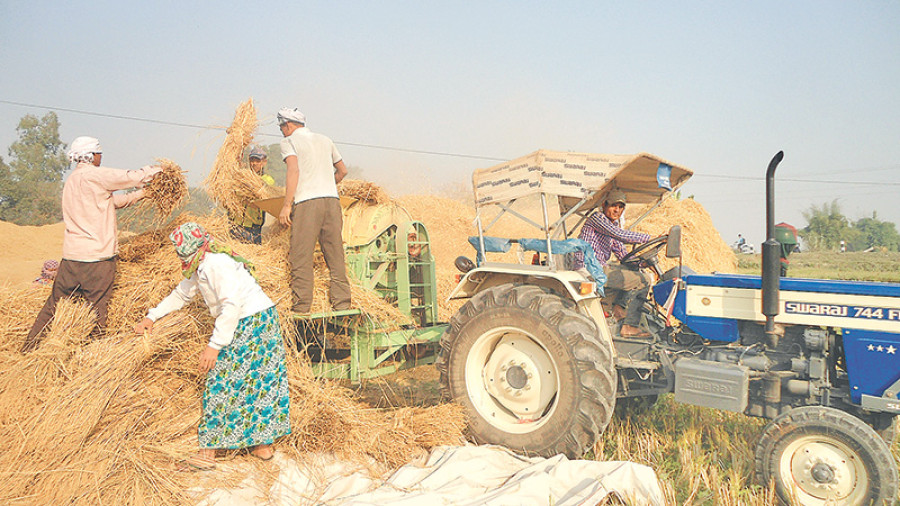Money
Farmers rue delay in procuring paddy, accuse influential traders lobby
Farmers in the far western region of Kailali are not a happy lot this year. Despite the government fixing paddy’s minimum support price (MSP) for this year, farmers allege that prices are being controlled by private traders because the state-owned Nepal Food Corporation (NFC) has not procured their produce.
Mohan Budhayer
Farmers in the far western region of Kailali are not a happy lot this year. Despite the government fixing paddy’s minimum support price (MSP) for this year, farmers allege that prices are being controlled by private traders because the state-owned Nepal Food Corporation (NFC) has not procured their produce.
In many of the southern Tarai fields, paddy harvest has already begun, with most of the farmers selling paddy in advance to arrange money for the festive season. Farmers in Kailali say that they have already started the harvest of paddy, but the NFC is yet to purchase their produce at the price set by the government.
As a result, paddy producers are being compelled to sell their crop to private traders at the rate fixed by them. They urge that the NFC begin the process to buy paddy as soon as the harvesting season ends.
Ganga Chaudhary, a farmer from Bhajani, said he and other farmers will not able to wait for the NFC to fix the price and then purchase their crop because they have to arrange money to finance their festive needs. “So, we are compelled to sell the crop to local traders as we need money urgently,” Chaudhary said, adding that they also have to purchase fertilisers for the next sowing season with the money earned from this harvest. Farmers said that they are selling ‘mota dhan’ at Rs1,900 per quintal against the government fixed price of Rs2,331. Similarly, local traders are paying Rs2,050 per quintal for common paddy. The government announced floor price of common paddy is Rs2,460.
Chaudhary said that NFC officials were intentionally delaying the process and private traders are taking due advantage from the farmers. The traders, however, claimed that the farmers are receiving a higher price for their crop, in comparison to last year’s price. “Traders are paying an extra Rs200 per quintal this year to the farmers,” said Hari Shankar Thakur, a grocery shop owner from Dhangadhi.
Prem Narayan Bhandari, chief of NFC regional office in Dhangadhi, said they were waiting orders from the head office in Kathmandu to purchase paddy from the farmers. “We will start purchasing paddy as soon as we receive orders as well as fund from the central office,” Bhandari said.
He said that the NFC will probably start purchasing paddy from mid-November. The NFC has planned to buy up to 10,000 tonnes of the paddy from the far western region for this year. Last year, the corporation had purchased only 4,300 tonnes of paddy despite the target of purchasing 6,000 tonnes.
Nepali farmers look set to reap the biggest harvest in history because of the timely and sufficient monsoon rains, the Ministry of Agriculture and Livestock Development said. Ministry officials added that a record harvest would bring down the country’s rice import bill besides significantly contributing to the government’s economic growth target as the economy is strongly dependent on farm production.
This fiscal year’s paddy output is expected to reach 5.66 million tonnes, up 10 percent from the 2017-18 harvest.
Paddy transplantation was completed on more than 95 percent of the 1.55 million hectares of rice fields this fiscal year, and there were no shortages of chemical fertiliser in key paddy producing areas, particularly in the southern Tarai plains, which is known as the country’s food basket.




 15.12°C Kathmandu
15.12°C Kathmandu














